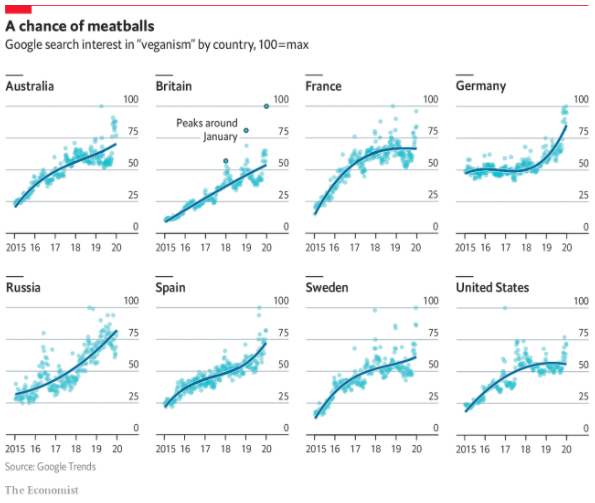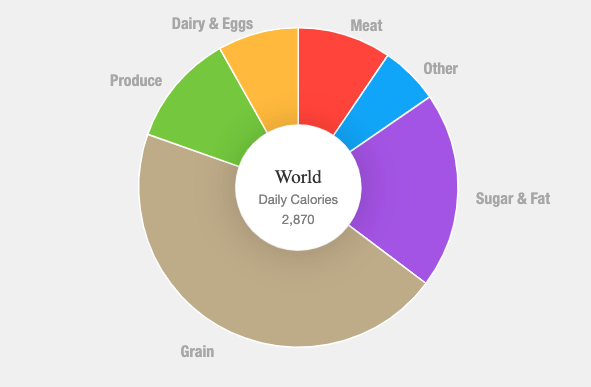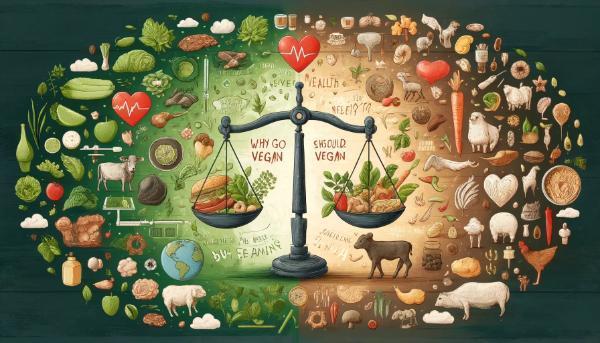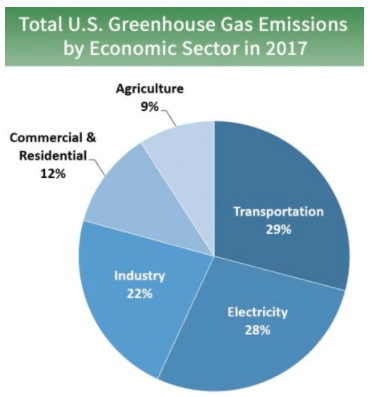Veganism, year after year, is growing into an increasingly hot topic. During my multitudinous encounters and miscellaneous conversations with people around the world, veganism, aside from it becoming a more and more common subject, I have also observed it evolving into a steadily more fanaticism-inspiring one. Indeed, the zealotry exhibited by many vegans is hardly matchable by the most hardcore of religious bigots and football fans. It’s been a while now I’ve been thinking to write down this article, expounding the opinions I have come to elaborate with regard to veganism during my numerous discussions with its proponents. Throughout this article, my main aim is to express my thoughts on some of the common questions emerging recurrently in such discussions; questions like:
- Why do people go vegan in the first place?
- Would it be beneficial for the whole of humanity to go vegan?
- Would it be possible for the whole of humanity to go vegan?
Before I dive into it, I deem it important to familiarize the reader with my general personal take on veganism in advance: I am not a vegan myself, nor a vegetarian, nor has it ever crossed my mind to become one. Although I despise fanaticism and naivete of any kind, I have nothing against any individual vegan and I see the rapid expansion of veganism around the world as an overall positive development. Now that I made that clear, I may move on to the first question…
Why do people go vegan in the first place?
Although the percentage of vegans worldwide seems to be decreasing due to rapid population growth in the developing world, there is an undeniable trend towards the adoption of animal-products-free diets in rich countries. No doubt the total number of vegans in the world is increasing at a faster-than-ever pace. Exactly how many vegans are in the world today: there is, of course, no way to closely estimate it. But the following, Google-Trends-based graph, published in this article by The Economist, gives a good glimpse of veganism’s boosting popularity in western societies.

So, why do all these people go vegan?
Judging from the vegans’ arguments, I have come to recognize three principal (plus one generic) reasons that urge people to go vegan. Most of them have become vegans after considering a combination of these three reasons, with one or another being more prevalent.
Veganism for animal welfare
Probably the most common incentive that leads people to stop consuming meat and other animal products has to do with concerns about the welfare of the animals themselves. The argument goes like: We humans are not intrinsically superior to any other animals, thus we have absolutely no right to cause them suffering through self-interested exploitation; but, as more enlightened and potent beings, we rather have an obligation to maximally contribute to their well-being.
Veganism for health
Another, anthropocentric argument vegans employ to justify their alimentary choices relates to personal health. Backed by hordes of nutritionists, dieticians, and physicians of various sorts, vegans claim that plant-only diets have a tremendously positive effect on one’s healthiness. Furthermore – in an argument that becomes especially relevant during the ongoing outbreak of Covid-19 – they claim that broad veganism would have an enormously beneficial impact on the well-being of humanity in the whole, as they deem animal-eating to be the main cause of the spreading of viral diseases.
Veganism for the environment
The third one of the principal reasons that makes people turn to veganism is to protect the environment. Adhering to a notion popularized by the 2014 documentary film Cowspiracy, vegans believe that the meat industry is to be blamed as the number-one cause of atmospheric pollution and environmental degradation.
Veganism for sheer belongingness
Social belongingness: the human tendency to imitate others and become a part of a larger group: the desire to be cool and be liked, from a purely psychological point view, is the fundamental reason for people going vegan, as much as it is for virtually all human actions and decisions… A human baby would never come to walk or speak if not to emulate and resemble their parents; a human could never have the slimmest trait of what we call personality outside of a social context. Thus the inclusion of belongingness as a reason to go vegan may seem redundant. But I am adding it so to classify that one group of people who became vegans out of sheer belongingness, without any self-justification whatsoever. I have, indeed, run across a substantial number of vegans who do not give an honest shit about animals, health, or the environment but anyway became vegans just to be liked by that vegan girl or boy they met.
Would it be beneficial for the whole of humanity to go vegan?
Now that we laid down the vegans’ rationale, I will proceed with examining whether and to what degree veganism is, in reality, beneficial to society. I am not going to concern myself with questioning the beneficialness of veganism on the individual level; that is, of course, relevant and subjective. I will rather focus on exploring the logic of the preacher-vegan: the advocate of universal veganism. To set off on this endeavor, let us begin by examining how sound each of the preceding three arguments is.
Do we ought to go vegan for the sake of animals?
Although I would totally agree that we humans are not intrinsically superior to animals, I would outright refute the idea that we are not practically superior to them. Evolution is all about practicality; there isn’t any intrinsic or divine order or hierarchy between species; there is only competition for resources. Sure there are countless examples of mutualistic symbiosis between biological organisms, but the only reason two species cooperate ultimately is to more effectively outcompete other species. However trite it may sound, nature is indeed cruel.
One of the most preposterous statements I have ever heard from vegans is that humans go against nature by eating meat: that humans are herbivores! First and foremost, this statement demeans the very standardness of language. A herbivorous animal is an animal whose digestive system is designed to dissolve and absorb energy from plants alone. If you force-feed a sheep with a bucketload of meatballs, in the best-case scenario, it will manage to vomit them, but most likely, it will kick the bucket due to oesophagus blockage. Likewise, a lion is a carnivore because if you force-feed it a bucketful of soya beans, you will only give it a good constipation. A human or a bear, on the other hand, will survive by eating both plants and flesh; thus they are considered omnivores. Furthermore, this statement is based on a widely-circulated rumor that apes, our direct ancestors, are herbivores, which is terribly erroneous.

That we, humans, are omnivorous animals, it does not mean, however, that we are carnivores. To our great luck, we can certainly survive on a plant-only diet. And although, within the scope of biological evolution, we definitely do not ought to care about the animals’ well-being, we still can care.
The thing is that, apart from the biological evolution, we also happen to be subjects of the peculiar to us memic evolution. Much more rapidly than physically, we do evolve mentally. We call this collective mental development of our species morality.
Morality is, in essence, what bids human collectives together. Throughout the history of our species’ integration, morality has grown from embracing the family to embracing the community, the nation, and finally humanity. Nowadays, for the first time in history, we have reached this juncture when circumstances allow for initiating a discussion on adopting a moral obligation towards non-human entities. The first and most obvious non-human candidate to be included in and benefit from our compassionable morality is, naturally, what resembles us the most: what we call sentient beings.
Though it may seem so, in my opinion, it is not so straightforward to define what a sentient being is. They will say that sentient is whatever is liable to suffering. I can clearly see why people are sensitive towards the suffering of animals, and especially mammals (because they express it in a very similar way to ours), but I cannot understand why nearly nobody believes that plants suffer, too. If you hack the bark of a pine tree, it will respond by producing resin to heal its wound. The pine tree feels that it’s been injured. That feeling could not be more accurately compared to anything else than pain. And pain is what most perfectly fits the definition of suffering. Vegans do not discriminate animals in favor of plants because the former suffer and the latter not; but because the former manifest their suffering in a way much the same with theirs.
The plasticity of morality and the immeasurability of suffering is what makes this first question the least straightforward to answer. Should we endeavor to go vegan for the sake of animals? It is a purely philosophical question that cannot be given a positive, ubiquitous answer.
To conclude, I may only state what I personally feel with regard to this question, which is: Yes, since we do feel compassion for beings that most closely resemble us, we should, whenever that does not conflict with our own prosperity, do our best to save their suffering and secure their well-being.
Would universal veganism entail healthier societies?
Nearly all vegans take it for granted that their diet keeps them healthier than their meat-eating fellowmen, but that is far from a fact. Given that one searches, one can hear all sorts of contrasting opinions by nutritionists, various scientists, and self-proclaimed connoisseurs on what a healthy diet is. But the reality is that the biochemistry of our bodies is far more complex than any human or current supercomputer can sufficiently analyze and comprehend; and an ideal diet highly depends on an infinitude of factors related to each individual’s lifestyle. Unfortunately, hardcore vegans, just like all fanatics, only heed to a very specific and confined stream of information.
I have met plenty of vegans in my life who looked very healthy. I don’t feel the slightest inclined to argue that they may have been even healthier if they ate meat or eggs. But I am inclined to say that I cannot see how many a healthy person following a well-balanced, diverse diet would become healthier if they excluded all animal products from their diet. To use myself as an example – who is the only person I can have firsthand experience with – even if I could afford veganism in both terms of economy and geography (I am oftentimes situated in regions of the world where vegan food is less than scarce), I could by no means be persuaded that I would be healthier on a vegan diet, no matter how fancy and pricey. I am by no chance a fanatic meat-eater either. I do not eat meat every day. And on certain occasions – such as in Indian holy cities where meat is prohibited; or during long outdoor expeditions where food packing and preservation counts – I have made it through considerably long periods on a vegetarian diet. But when the opportunity comes, I feel very mentally delighted and physically reinvigorated to ingest that steak.
At the end of the day, each one of us knows best when oneself feels healthy. When it comes to healthy eating, every generalization, I believe, is but a generalization. My personal, humble generalization would be that the best diet is a well-balanced, diverse diet.
Although I am personally not convinced that, when it comes to nutritional value, plant-only diets are beneficial to the health of the individual, and of humanity in extent, I can certainly recognize that proponents of veganism make a very good point by indicating the disease-related health issues that meat-eating involves.
Whereas no plant viruses have ever been known to affect humans, animal viruses have a long history of mutating and jumping on to humans, decimating entire populations. The most recent example of this is, of course, the ongoing Covid-19 pandemic which is believed to have originated in a live-wild-animal market in China. Quite justifiably do the vegans advocate a universal exclusion of animal-products from our diets as a means to eradicate viral disease.
However, even though it would undoubtedly go a long way with combating disease, widespread veganism would give rise to another, perhaps direr danger than disease: famine. History has shown multiple times how high dependence on any singular source of food can go terribly wrong. Under a theoretical universal veganism, one could well imagine a similar to the Irish Potato Famine Soyabean Famine to be a matter of time. Many vegans would claim that there is an inexhaustible variety of alternative-to-meat protein sources. But however wide that variety is, it is but a fraction of the total variety. No doubt that the more diverse our food choice is, the more safeguarded our food chain is against disruption. I guess that improved sanitation and increased regulation of the meat industry would be a more effective, as well as immediate, tactics to confront disease than quitting meat altogether.
Conclusively, I cannot see how impairing food diversity would lead to a healthier people. Rather than that, broadening food diversity and enhancing its quality, by also developing and embracing artificial food, would be a better go to that end.
Does veganism have a favorable impact on protecting the environment?
As I already mentioned above, mostly owing to the Cowspiracy film, many vegans take it for an uncompromised fact that to quit eating meat and other animal products is the most important thing one must do to save the planet from ecological disaster. The cornerstone of this belief lies in Cowspiracy’s stats, wherein, among many other ‘facts’, the author of the film states:
Livestock and their byproducts account for at least 32,000 million tons of carbon dioxide (CO2) per year, or 51% of all worldwide greenhouse gas emissions.
Cowspiracy facts
First of all, I checked out the main source of the film’s facts which is a 2006 two-page report published in the UN News. There was nothing about a “51% of all worldwide greenhouse gas emissions” in it. There were some figures similar to other data given in the film, but still, not quite identical, and there was no clue whatsoever as for what the report’s data is based on.
I ran the Google search “how much co2 does the meat industry produce“. I got mixed results. Some of them downright rebutted the idea that the meat industry is to be considered a major polluter. Some affirmed it, holding it accountable for a maximum of 18% of global greenhouse emissions.
Then I searched “greenhouse gas emissions by sector” and, among other analogous results, was returned the following:
The most I can see is 11.9% of greenhouse gas emissions given to agriculture in total.
Much of the film’s rhetoric is based on further assumptions related to methane emissions in particular, water consumption, and land usage. It gives some really impressive numbers about the negative impact cows have with regard to these points, but relevant research shows them again to be exaggerated. I will not go too far with posting more graphs and sources. I will rather leave it up to anyone who wants to do their own research. I will only leave a link to this article which disproves all of Cowspiracy’s assumptions one by one. In no way do I want to say that their data is necessarily truer than Cowspiracy’s (it seems like a site of the opposite extreme: meat-eating fanaticism), but I deem it a good place to get a first, alternative view on the matter.
I am totally prepared to hear that all this is a conspiracy (cow-spiracy or whatever-spiracy you may) orchestrated by the wicked, all-powerful lobbyists behind the meat industry, abetted by the authors of those websites, Google, all the world’s major environmental organizations, governments, perhaps aliens, and everything that’s evil… but I am not predisposed to take such comments seriously.
Not because I trust Google or anyone else blindly, but because I trust my intuition and common sense, aided by whatever I understand of physics and how things work, I cannot buy that animal agriculture is anywhere nearly as harmful to the environment as coal, petroleum, mining, transportation, plastics, chemicals, and many other heavy industrial activities. When one wants to protect the environment, there are many other fields to direct one’s action and make better use of one’s resources.
In conclusion, I would not concur that veganism has any significant effect on the battle against climate change. It rather seems that all this story has originated solely out of animal-rights activists’ sentimentalism. After all, bison, buffaloes, deer, antelopes and numerous other wild ruminants have roamed the Earth’s surface in the millions for millions of years, drinking its freshwater, grazing its grass, and farting loads of methane without causing the planet’s ecosystem to collapse.
Conclusion: Would universal veganism benefit humanity?
For all the reasons I illustrated above, in my opinion, veganism does little, if any, good for humanity. It does, however, greatly avail the animals. And, unless we are sadistic nuts, we should rather begin to be more considerate about their welfare. Who knows, perhaps such an attitude is going to work for our karma. So I personally think that, whenever they can afford it, people would do good to incorporate more plants in their diet.
But when it comes to strict universal veganism: everyone going vegan everywhere: a prospect that the adamant vegan preachers so fervently promote, everything we have discussed so far in this article is but mere speculation on how beneficial to humanity such a theoretical prospect would be. There is still a more actual question…
Would it be possible for the whole of humanity to go vegan?
If the whole world went vegan…
Animals are left out of our food chain to live out their happiest and most peaceful lives, illnesses such as stroke, diabetes and heart disease decrease, and the environment is pulled back from the dark path which it currently tiptoes down. What a wonderful world to dream of, but soon, out of necessity, it might become the only world we know.
veganfoodandliving.com
This short passage is an excellent example of vegan quixotic pipe dreaming. In this and jillions of other similar articles, we read grandiose statements about how going vegan is the one single thing we can do today to transform the planet into a tickled-pink utopia: how animals will thrive; greenhouse emissions will be dramatically decreased; vast areas of land will be freed for other uses; disease will be eradicated; humans will live healthier and longer lives; and so on and so on until, in short, veganism is our longed-for messiah: the answer to all our questions and the solution to all our problems.
Even if we assume that statements and figures published in the above-mentioned articles have some statistical basis, they fail to take even the most screamingly obvious of other factors to be considered into account. In this respect, saying that universal veganism will save us from ecological disaster is equivalent to saying that extinguishing the entire surrounding universe will save us from asteroid impacts.
As with every radical change in any system, the entire world going vegan would, in the long term, lead to a vastitude of unforeseeable repercussions. But as for the palpable, immediate results of such a change… they are quite straightforward to predict.
With regard to the “animals being left out of our food chain to live out their happiest and most peaceful lives”, that wouldn’t happen simply because, if it wasn’t for us, they would not have their lives in the first place. Farm animals live only because we rear them for our nutritional needs. Claiming the land used for rearing livestock for planting crops instead, would not allow for wildlife taking it over.
With regard to humans, if all of them went suddenly vegan, the immediate consequence would be that, in a moderate estimate, about a fifth of them would die of starvation in short order.

You see, the world population, just like the population of any species, is directly proportional to the energy (food) available. If you take a fish tank, place within a primogenitorial couple of goldfish, and supply them with an X amount of food, their population will eventually grow to Y. If you then decrease their food supply by 1/2X, their population will decline accordingly by 1/2Y. It is a no-brainer; it works exactly the same for the human population.
Of course, the advocates of universal veganism have many arguments ready to show how the world could be sufficiently fed in a post-meat era. But it is these very arguments which are the most childish and naive thing about their whole story.
One of these arguments is related to food waste. They say that the amount of plant-based food we throw away is more than enough to replace animal-based food in our diets. This may be true, but their proposed solution to food waste: just stop wasting food: is not that sound. Despite what some will have you believe: that the food industry surreptitiously forces us to throw our food away so to sell us more food, waste is an outcome inherent in every industrial, as well as natural, process. If you have a scheme for perfect food-chain optimization… go on, implement it, save the planet and become rich in the process.
The most enunciated of these arguments is that we simply take the land used for animal husbandry and use it to grow crops instead. This is said with such easiness as if saying that we take the wine glass and drink beer from it. It is one of the most fundamental rules in agricultural economics that crops cultivation, wherever possible, is far more profitable than animal husbandry.
Be you the meat industry, go persuade farm owners in the plains of the Mississippi and the Yangtse to quit growing wheat and rice respectively for rearing cows instead… Good luck!
Be you a vegan daydreamer, go buy land in the Scottish Highlands; in the pastures of Iceland, Argentina, South Africa, New Zealand, or Mongolia; in the craggy slopes of the Pyrenees or the Alpes and try to grow grain or whatever other crop you choose… buy a stretch of ocean and grow seaweed to feed humanity… no amount of luck will help you.
The reality is that almost the entirety of the planet’s arable land that is suitable for growing crops has been used for exactly that since centuries already. Almost all land used for grazing or growing fodder is land where growing human food is either impossible or economically inviable. The human population having grown to its current size is a result of having exploited the planet’s land and oceans to the degree we have, growing grain as a first priority, other crops as a second priority, and rearing animals as a third priority.
Conclusion: With current technology, it is downright impossible for the world population to go vegan (without being trimmed) at any time in the imminent future. Whereas it is straightforward for a citizen of, say, New York or London to walk into the supermarket or the fancy health-food-shop and buy whatever they please, it is hard to imagine how, say, a nomad in the steppes of Central Asia or a fisherman in a coastal village of Indonesia could possibly go vegan. It will all but certainly become possible at some time in the future by developing hydroponics and other advanced cultivation techniques, but probably artificial food will be faster to replace all types of natural food than plant-based food will be to replace all animal-based food.
A word for vegans
I am going to finish this article with some afterthoughts aimed at vegans; particularly whom I would call bad vegans: vegans who will not content themselves in adjusting their diet in whatever way they please, but will go about vehemently criticizing and scoffing their fellow humans for, basically, just surviving.
I will go back to the Cowspiracy film to borrow a very characteristic example of such a vegan. Towards the end of the film, appears a Physician and ‘vegan health educator’ by the name Dr. Michael A. Klaper and, asked “whether anyone should be consuming dairy”, gives the following splashy and sardonic speech:
I really don’t. When you think about it, the purpose of cow’s milk… I did most of my growing up on a dairy farm in Wisconsin. The purpose of cow’s milk is to turn a 65-pound calf into a 400-pound cow as rapidly as possible. Cow’s milk is baby calf growth fluid. It’s what the stuff is. Everything in that white liquid, the hormones, the lipids, the proteins, the sodium, the growth factors, the IGF, every one of those is meant to blow that calf up to a great big cow, or it wouldn’t be there. And whether you pour it on your cereal as a liquid, whether you clot it into yogurt, whether you ferment it into cheese, whether you freeze it into ice cream, it’s baby calf growth fluid. And women eat it and it stimulates their tissues, and it gives women breast lumps, it makes the uterus get big, and they get fibroids and they bleed and they get hysterectomies, and they need mammograms, and gives guys man boobs. This is… Cow’s milk is the lactation secretions of a large bovine mammal who just had a baby. It’s for baby calves. I tell my patients, “Go look in the mirror. “Do you have big ears? Do you have a tail? Are you a baby calf? “If you’re not, don’t be eating baby calf growth fluid.” In any level, there’s nothing in it people need.
I would be very pleased to hear why that gentleman, during the interview, sits in a wooden chair since the purpose of a tree trunk is certainly not to be turned into a plank for humans to rest their buttocks on… and why he wears clothes since the purpose of cotton or linen is certainly not to wrap a hairless ape’s bare skin… and why he eats anything at all since the purpose of seeds, leaves, roots, or whatever else he eats is certainly not to feed him.
Whereas that gentleman is certainly an expert in capitalizing on the agony of the health-anxious, well-off, western individual, and making a fortune for himself in the process, he is far from a great logician and hasn’t got anything to say with regard to actual, pressing global issues.
To bring this to an end…
If you are a vegan for personal reasons, one who has the sensibility to respect others’ choices and the brain to comprehend reality, you are doing great. You most definitely do not do anything wrong and you do a great deal of good.
If you have become a vegan motivated by universal concerns, and you have the illusion that, by devoting yourself to pompously preaching and acrimoniously chastising in favor of veganism, you are contributing something to the general good, you are on the wrong track. You do not offer anything substantial. You’re just being noxious.
If you have a nature-loving motivation for becoming a vegan, instead of giving hollow sermons, better do research in fields such as clean energy or industrial optimization.
If you have a philanthropic motivation for becoming a vegan, instead of giving hollow sermons, better do research in fields such as medicine or nanotechnology.
If you have a philozoic motivation for becoming a vegan, instead of giving hollow sermons, better do research in fields such as hydroponics or food 3d-printing.
If you are not the researching type of person, better be a vegan for your personal reasons and let others be in peace.






